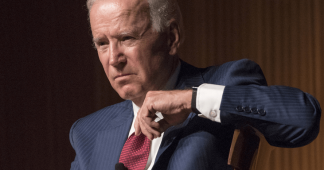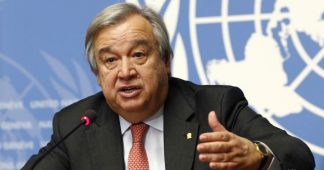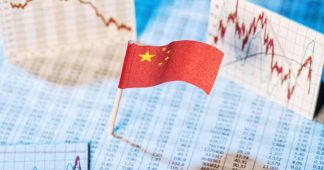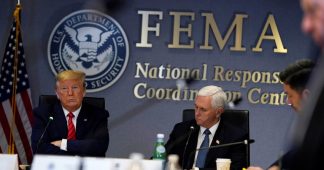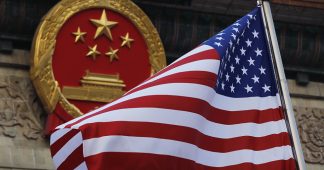Biden’s ‘duplicity no different from Trump’; selfish in nature
Cao Siqi Sep 22, 2021
US President Joe Biden said the US is not seeking a new Cold War and is ready to work with any nation that steps up and pursues peaceful resolution to shared challenges despite tense disagreements in other areas, an apparent reference to China, in his first address to the UN General Assembly in New York on Tuesday.
While touching on the common challenges of mankind, such as COVID-19 and climate change, his speech also contained many indirect accusations against China. He tried to justify many of the country’s unilateral actions that have been long denounced by China, such as asserting the navigation freedom and the observance of so-called international laws and treaties.
In a stark contrast with his inaugural address, which ignited great passion from Europe and other US’ allies, Biden’s UN speech was delivered amid extensive questions over whether the US is still capable to lead the world. Growing doubts have emerged, especially from its allies, over Biden’s foreign policy, a field in which he has described himself as an expert, and his ability to quell domestic political chaos and contain the worsening COVID-19 epidemic situation.
Experts pointed out that his address, which comes amid global criticism of the US over its irresponsible and chaotic withdrawal from Afghanistan, as well as the mounting fury from France over a submarine deal with Australia snatched by the US, fully displayed Biden’s political hypocrisy and exposed the selfishness of US foreign policy. They believe growing numbers of US allies and partners will see its true face.
On Tuesday, Chinese President Xi Jinping is also scheduled to deliver a speech at the same event via video link and is widely expected to put forward a series of ideas on global governance and international cooperation on major issues, such as measures on fighting COVID-19, climate change, and the global industrial chain.
During last year’s general debate, Xi pledged that China would provide COVID-19 vaccines to developing countries on a priority basis, and would honor its commitment to provide $2 billion in international assistance over two years. He also promised to provide another $50 million to the COVID-19 Global Humanitarian Response Plan, and establish the phase III FAO-China SSC Trust Fund with $50 million.
‘No big wisdom’
One year ago, then US president Donald Trump made his final address to the UN General Assembly, turning the multilateral dialogue platform into a battlefield to attack and defame China. Trump downplayed the dangers of the coronavirus in the US, bragged about his administration’s response to the pandemic and sought to “hold China accountable for its actions” related to the coronavirus pandemic.
Right now, the COVID-19 pandemic remains a central challenge for the US, and Biden is being urged to take additional steps to fight COVID-19 on the global stage.
In an interview ahead of his meeting with Biden, the UN Secretary-General António Guterres told The Associated Press that he was concerned about the “completely dysfunctional” US-China relationship, and that it could lead to a new Cold War. White House press secretary Jen Psaki said the administration disagreed with the assessment, adding that the US-China relationship was “one not of conflict but of competition.”
Guterres on Tuesday urged the US and China to engage in dialogue, warning of an increasingly divided world. “I fear our world is creeping towards two different sets of economic, trade, financial and technology rules, two divergent approaches in the development of artificial intelligence — and ultimately two different military and geopolitical strategies,” Guterres said as he opened the annual UN General Assembly.
“Biden’s statement is obviously contradictory to what his administration is doing in his policy on China. It doesn’t mean a new Cold war is unlikely, but means when it occurs, Biden will blame China for the outcome,” Li Haidong, a professor at the Institute of International Relations of China Foreign Affairs University, told the Global Times on Tuesday.
Biden and Trump’s diplomacy are different, as the Biden administration only strives to find a way to rope in more countries to blame China, even if it is entirely caused by a series of actions from the US, Li said, noting that “the current US government is good at playing petty tricks, but does not have big wisdom.”
Selfish in nature
In his speech, Biden also promoted his multilateral, diplomacy-focused worldview.
A senior administration official told journalists on Monday that the stance is in direct contrast to the “America First” doctrine of his predecessor, Donald Trump, according to VOA reports.
White House press secretary Jen Psaki said Monday that the president’s speech Tuesday will highlight the importance of reestablishing alliances “after the last several years.”
But Biden’s vision seems to be clashing with an awkward reality. On Friday, France recalled its ambassadors to the US and Australia, expressing its anger at the two countries and describing the nuclear-powered submarine deal as a “stab in the back.”
VOA said it is the first time France has withdrawn an ambassador.
Analysts noted that similar to the withdrawal of its troops from Afghanistan, which was done without notifying its allies in advance, betrayal is not uncommon in US history. After the US achieved its independence with the help of France, it immediately kicked it away. Now, France has felt the betrayal again, and the country’s resentment highlights the deep cracks within NATO.
“A growing number of its allies are seeing more clearly that the US’ overall diplomacy is still ‘America first’ and its foreign policy is extremely selfish in nature,” Li said.
“Biden’s duplicity turned out to be no different from Trump’s. Despite always emphasizing US’ allies, the transatlantic alliance is virtually dead,” Lü Xiang, an expert on US studies at the Chinese Academy of Social Sciences, told the Global Times on Tuesday.
Biden has even less diplomatic ability than Trump and no consistency. Nobody would believe in him. Europe is learning that it is not China that is splitting the alliance, but the US, Lü said.
According to media reports, Bident is scheduled to meet with British Prime Minister Boris Johnson on Tuesday at the White House, and also has invited the prime ministers of Australia, India and Japan – other members of an Indo-Pacific alliance known as “the Quad” – to Washington on Friday. In addition to the gathering of Quad leaders, Biden will sit down for one-on-one meetings with Indian Prime Minister Narendra Modi and outgoing Japanese Prime Minister Yoshihide Suga. Last month, US Vice President Kamala Harris toured several Southeast Asian countries, but achieved little.
The intensive diplomatic activities all aimed to build a coalition against China, but the effect has been very limited, Jin Canrong, associate dean of the School of International Studies at the Renmin University of China, told the Global Times on Tuesday.
The US will continue to invest resources to contain China on human rights, values, science and technology, trade and other fields, but we can tell the prospects based on past results, Jin said.
The US is suffering a crisis of trust from its allies and partners, which will adopt a “wait-and-see” attitude toward the US for some time, Jin said.
Published at www.globaltimes.cn
We remind our readers that publication of articles on our site does not mean that we agree with what is written. Our policy is to publish anything which we consider of interest, so as to assist our readers in forming their opinions. Sometimes we even publish articles with which we totally disagree, since we believe it is important for our readers to be informed on as wide a spectrum of views as possible.
